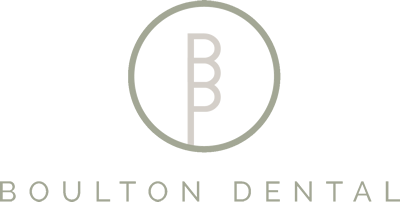GET ACTIVE WITH YOUR DENTAL ORAL HEALTH
 We talk a lot about prevention at Boulton Dental.
We talk a lot about prevention at Boulton Dental.
That’s because we don’t want you to suffer pain or need to undergo costly and invasive procedures.
Maybe you weren’t ever shown how to care for your teeth and gums properly. Maybe you didn’t know that dental decay and gum disease are chronic diseases that can be detected early, and managed.
We’ll give you step-by-step instructions and the tools you need to make sure you stay healthy.
You can read a bit more about periodontal disease – or gum disease – to the right (and see what you’ll be missing out on if we work together). Miss out on what? Periodontal disease.
